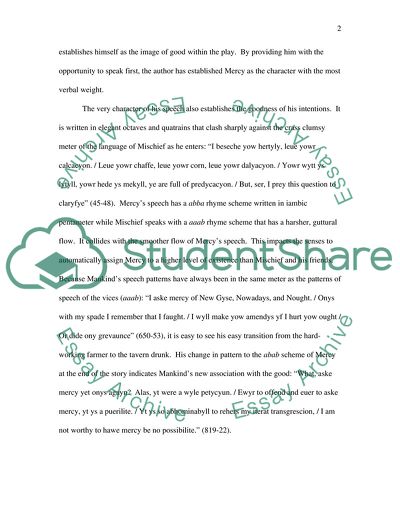The Major Themes Arising in the Play Mankind Essay Example | Topics and Well Written Essays - 1750 words. https://studentshare.org/literature/1703421-the-major-allegorical-themes-emerging-from-mankind
The Major Themes Arising in the Play Mankind Essay Example | Topics and Well Written Essays - 1750 Words. https://studentshare.org/literature/1703421-the-major-allegorical-themes-emerging-from-mankind.


